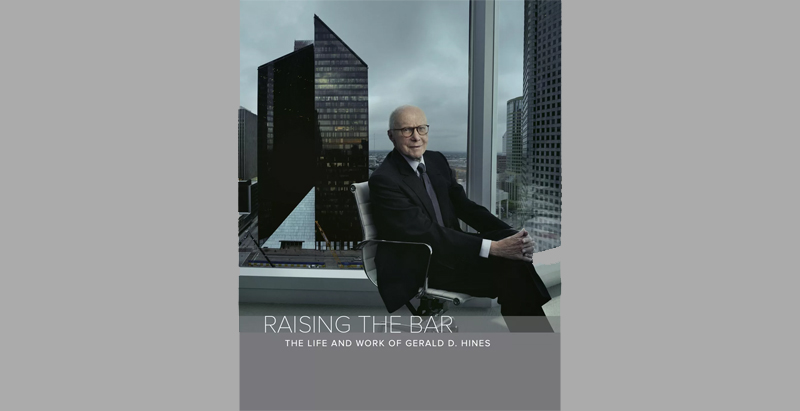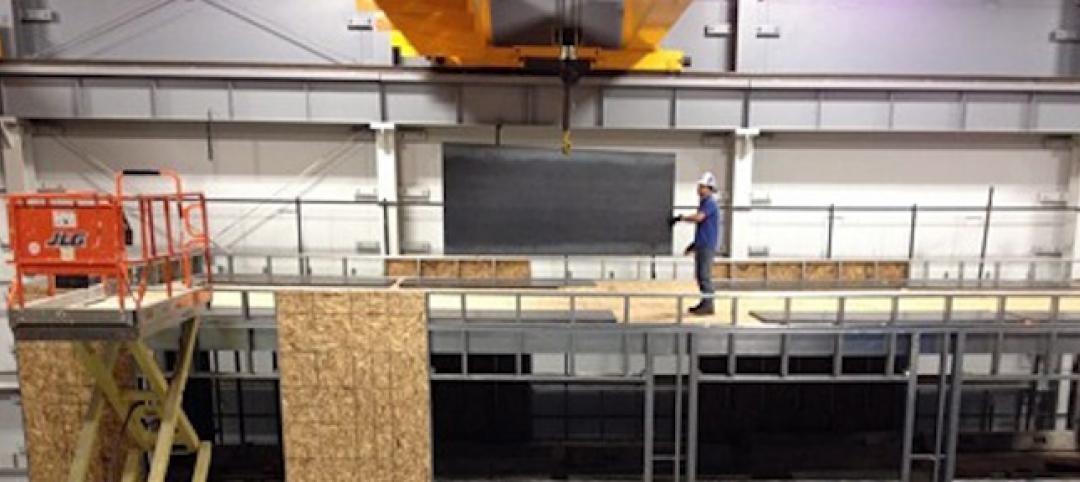My life is rather good, but it’s negligible compared to what that man has done for the art of architecture.” It’s not every day that a Pritzker Laureate heaps praise on a commercial real estate developer. But that’s just want happened during a 1998 lecture by the late postmodern design pioneer Philip Johnson.
Reminiscing about his collaborations with Gerald D. Hines, Johnson gushed over the Houston developer, calling Hines his “mentor and Medici,” adding, “Everything I’ve done, and everything I’ve been, I owe to Gerry Hines.”
Over a span of nearly 30 years, Hines and Johnson teamed to create more than a dozen groundbreaking commercial developments. The unlikely duo—Hines a Gary, Ind.-born math whiz who carried a slide rule in his suit jacket pocket all of his professional life; Johnson, a Harvard-educated, East Coast design elite best known for his Glass House and work with Ludwig Mies van der Rohe—threw the developer-architect rulebook out the window in creating some of Hines’ most daring—and successful—developments.
Most notable is Houston’s Pennzoil Place, with its twin, 36-story trapezoidal towers. Some credit the acclaimed project, completed in 1975, with sparking a reconnection between architecture and commercial real estate development in the U.S. “After Pennzoil, everyone wanted something other than a box, it seemed,” wrote architecture critic Paul Goldberger in 2012.
The Hines-Johnson alliance is one of countless stories chronicled by author Mark Seal in a new 464-page book about the developer’s career and life, “Raising the Bar: The Life and Work of Gerald D. Hines.”
The book offers a glimpse into the man who, fresh out of Purdue University in 1948 with a degree in mechanical engineering, road tripped to Houston with little money and no place to live. In less than a decade, Hines was developing warehouses and small office buildings throughout the city. By the late 1960s, he was working on what would become some of the city’s most iconic buildings: One Shell Plaza, The Galleria, and later Pennzoil Place and Williams Tower.
Through his stories and projects, Hines, who turns 91 this year, offers a wealth of lessons in real estate development. A few that stuck out:
Know how to spot an opportunity. Hines was one of the first developers to gamble on the idea of high-rise living in Houston when he planned the 16-story Willowick apartment complex in 1963. While others questioned his move, Hines had a trick up his sleeve. He spotted a niche market that wasn’t being served: housing for widows, who preferred the security and efficiency of high-rise living over single-family homes.
Take pride in ownership. While other developers profit from flipping their properties, Hines favors the build-and-hold strategy. “I didn’t think anybody built them better than I did,” he said. “I believed they’d be worth more in the future.”
Harness the power of great architecture. From Bruce Graham to Gyo Obata to Johnson, Hines invested in quality design because he realized the market was willing to pay for something that is truly unique. Great architecture makes good business sense.
For anyone who is fascinated by the world of commercial real estate development, “Raising the Bar” is a must-read. Let’s just hope that Hines’ lifelong passion for creating great buildings inspires a new breed of holistic, design-minded developers.
Related Stories
| Jun 19, 2013
Florida is latest battleground over LEED standards centered on certified wood
A nationwide battle over forest certification standards continues to be played out nationally and in Florida with legislation passed this month.
| Jun 19, 2013
Construction site safety improved in 2011
On-the-job construction fatalities dropped from 802 in 2010 to 781 in 2011, and recordable injuries fell from 4.7 per 100 workers in 2008 to 3.9 per 100 in 2011, according to data from the Bureau of Labor Statistics.
| Jun 19, 2013
New York City considers new construction standards for hospitals, multifamily buildings
Mayor Michael Bloomberg’s administration has proposed new building codes for hospitals and multifamily dwellings in New York City to help them be more resilient in the event of severe weather resulting from climate change.
| Jun 18, 2013
Report: HVAC occupancy sensors could slash building energy demand by 18%
Researchers at the DOE's Pacific Northwest National Laboratory conclude that significant energy savings can be achieved by varying ventilation levels based on the number of people in a given space.
| Jun 18, 2013
Turner report: Activity in urban markets driving construction cost increases
Turner Construction Company announced that the Second Quarter 2013 Turner Building Cost Index – which measures costs in the non-residential building construction market in the United States – has increased to a value of 859. This reflects a 1.18% increase from the First Quarter 2013 and 4.00% yearly increase from the Second Quarter 2012.
| Jun 17, 2013
First look: Austin to get first high-rise since 2003
Developer Cousins Properties broke ground on the 29-story Colorado Tower in downtown Austin, Texas, the city's first high-rise building since Cousins' completed the Frost Bank Tower a decade ago.
| Jun 17, 2013
DOE launches database on energy performance of 60,000 buildings
The Energy Department today launched a new Buildings Performance Database, the largest free, publicly available database of residential and commercial building energy performance information.
| Jun 14, 2013
First look: Callebaut's eye-popping Möbius building for Taichung arts center
French design firm Vincent Callebaut Architectures has released renderings of "Swallow's Nest," an entry in a design competition for a new cultural center, fine arts museum, and public library in Taichung City, Taiwan. The building, based on a Möbius ring, swirls around a central "Endless Patio."
| Jun 14, 2013
Purdue, industry partners test light steel framing for seismic safety
A partnership of leading earthquake engineering researchers from top U.S. and Canadian universities and design professionals from the steel industry have begun the final phase of a three-year project to increase the seismic safety of buildings that use lightweight cold-formed steel for their primary beams and columns.
| Jun 13, 2013
7 great places that represent excellence in environmental design
An adaptive reuse to create LEED Platinum offices, a park that honors veterans, and a grand national plaza are among the seven projects named winners of the 2013 Great Places Awards. The Environmental Design and Research Association recognize professional and scholarly excellence in environmental design, with special attention paid to the relationship between physical form and human activity or experience.
















